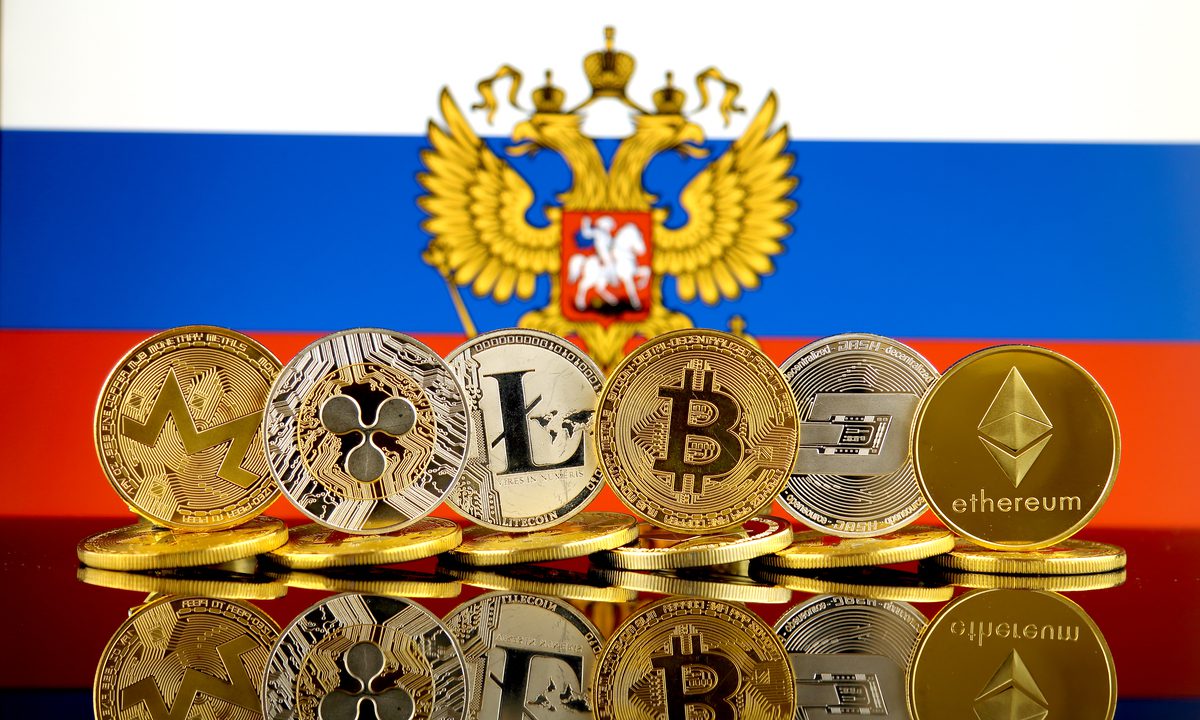Russia Proposes Traditional Exchanges for Digital Asset Trading
16.07.2024 20:00 1 min. read Alexander Stefanov
Russia’s Ministry of Finance is proposing a new regulatory approach that could allow established financial exchanges to manage digital asset trading for a limited group of investors, as reported by Interfax on July 10.
Under this proposal, special regulations would be crafted to oversee the trading of digital currencies, recognizing them as commodities. This would involve granting licenses to exchanges or trading systems specifically tailored for this purpose. Initially, access would be restricted to a select category of “highly qualified” investors, with the exact criteria yet to be defined.
Presently, Russia’s Central Bank has already licensed seven entities, including Moscow Exchange and St. Petersburg Exchange, capable of handling such transactions.
Anatoly Aksakov, Chairman of the State Duma Committee on Financial Markets, noted these exchanges are prepared to integrate digital asset trading once the regulatory framework is established.
Furthermore, the government’s draft response also outlines plans for an experimental legal framework to regulate crypto mining and settlements. It proposes formal recognition for digital currencies and explores their potential use in foreign exchange transactions, including payments for international trade agreements.
Prime Minister Mikhail Mishustin has directed efforts toward developing an international crypto payment mechanism by 2022, which could lay the groundwork for future central bank digital currencies (CBDCs) and the legalization of stablecoin usage in global transactions.
-
1
Mike Selig Tipped to Lead CFTC as Washington Warms to Crypto Reform
05.10.2025 19:00 2 min. read -
2
Gold Rally Nears Overheated Levels as Price Stretches 18% Above 100-Day Average
05.10.2025 14:30 1 min. read -
3
Vitalik Buterin Warns of Risks if Digital Infrastructure Stays Opaque
24.09.2025 18:30 2 min. read -
4
Coinbase’s Base Pushes Beyond Dollar Stablecoins With Local Currency Tokens
03.10.2025 10:00 2 min. read -
5
MetaMask Confirms $30 Million Rewards Program But Warns Rumors Are Misleading
05.10.2025 14:00 2 min. read
Franklin Templeton: The Real Future of Investing Is Being Built in Asia
Asia is quietly taking the lead in digital finance. While U.S. regulators hesitate, markets across the Pacific are already turning tokenization from theory into reality.
Why Stablecoins Could Be the Trojan Horse of Digital Finance
Not all stability is created equal – at least not in crypto.
Crypto Markets in Freefall – Here’s Who’s Stepping Up
The crypto world was rocked this week as Bitcoin’s meteoric rise ended in a historic crash, liquidating nearly $19 billion in leveraged positions.
MrBeast’s Secret Trademark Filing Hints at a Huge Crypto Project
YouTube’s biggest creator, Jimmy Donaldson – known to the world as MrBeast – may soon make a surprising leap from viral challenges to digital finance.
-
1
Mike Selig Tipped to Lead CFTC as Washington Warms to Crypto Reform
05.10.2025 19:00 2 min. read -
2
Gold Rally Nears Overheated Levels as Price Stretches 18% Above 100-Day Average
05.10.2025 14:30 1 min. read -
3
Vitalik Buterin Warns of Risks if Digital Infrastructure Stays Opaque
24.09.2025 18:30 2 min. read -
4
Coinbase’s Base Pushes Beyond Dollar Stablecoins With Local Currency Tokens
03.10.2025 10:00 2 min. read -
5
MetaMask Confirms $30 Million Rewards Program But Warns Rumors Are Misleading
05.10.2025 14:00 2 min. read
Russia is back in the spotlight after recent issues with the Libyan dinar, which Libyan officials attribute to a surge in counterfeit bills reportedly linked to Russia.
Russia’s attempt to formalize its crypto mining sector is falling short, with most miners opting to remain off the books despite new regulations.
Russia is advancing its approach to cryptocurrency regulation with newly proposed amendments aimed at taxation.
Russia is piloting a new legal framework aimed at enabling cryptocurrency payments for international trade.
Russia is tightening its control over cryptocurrency mining by introducing new regulations that require mandatory registration of mining equipment.
The Bank of Russia plans to monitor all cross-border cryptocurrency transactions over the next six months, involving 19 major banks such as Citibank, MTS Bank and Raiffeisenbank.
Amid international sanctions, Russian firms have turned to cryptocurrencies like Bitcoin and Tether’s USDt for trade with China and India.
Russia is moving forward with plans to establish two cryptocurrency exchanges, one in Moscow and another in St. Petersburg, in a bid to enhance its international trade capabilities.
In 2024, Russia's economy shows robust growth, surpassing expectations with a 5% GDP increase in the first five months.
Russian President Vladimir Putin recently signed a new law on cryptocurrencies that expands the legal framework for their mining and related infrastructure across the country.
Russia is reportedly considering allowing Bitcoin and cryptocurrency trading for select investors as part of efforts to boost international crypto settlements amid ongoing geopolitical challenges.
The Russian Central Bank surprised many by holding its key interest rate steady at 21%, a move that contradicted predictions of an increase to 22% or more.
Russia’s economy is grappling with severe challenges as the ruble tumbles to its lowest value in over two years, recently hitting 114 against the U.S. dollar.
Russia’s largest power grid operator, Rosseti, is exploring ways to tap into the cryptocurrency mining sector by leveraging its underutilized energy resources.
Recently, misleading information spread claiming that Russia had officially adopted Bitcoin mining and cryptocurrency payments.
Russia’s oil exports took another hit last week, undermining gains from rising global prices as shipment volumes slipped for the second week in a row.
Russian state-owned defense and technology giant Rostec has unveiled plans to launch a ruble-pegged stablecoin and digital payments platform by the end of 2025, marking one of the country's most significant moves yet toward blockchain-based financial infrastructure.
A former investigator with Russia’s Investigative Committee, Marat Tambiev, has been at the center of a high-profile bribery case involving Bitcoin, with the authorities now focusing on the liquidation of over 1,000 BTC, worth approximately a billion rubles.
A Russian court has reportedly imposed a staggeringly large fine on Google for restricting access to several YouTube channels affiliated with Russian state media.
A Russian cybercrime group is reportedly leveraging a series of AI-generated websites to implement software aimed at stealing cryptocurrency wallet credentials.


